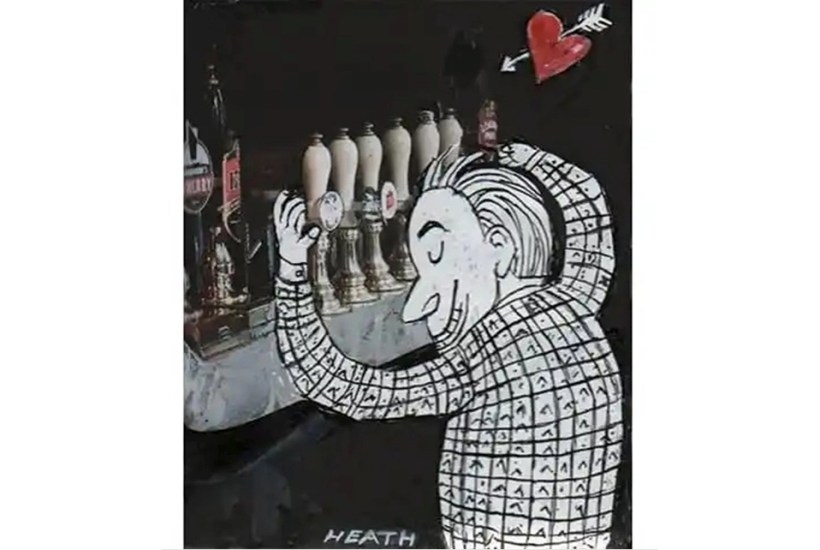I don’t remember much of freshers’ week at Edinburgh. Friends have helped to fill in the blanks. I vaguely recall a police officer handing out vodka shots to show how easy it was to fail a breathalyser test. A famous DJ had his set in the union cut short because he played the song ‘Blurred Lines’. It had been banned by student politicians.
I have hazy memories, too, of my first interactions with posh English women. One assumed I must be gifted since I’d made it into university from a Scottish state school. Another asked if I was limping because I’d overdone it at the ‘introduction to reeling event’ (I have cerebral palsy). Posh English men were no better. At a party exclusively made up of Old Harrovians, I was laughed at when I got out my Android phone. This was an iPhone-only crowd.
During freshers’ week, I met communists and members of European royal families. It was fun but awkward. I’m not sure I could have done it sober. But things are changing. Several universities have renamed freshers’ week ‘welcome week’ to try to break away from the association with heavy drinking. At King’s College and UCL the freshers’ fair has become the ‘welcome’ fair. Exeter University officials have made similar changes, saying: ‘We’ve decided to rename freshers’ to ensure the language we use is relevant and inclusive to all students.’ Edinburgh has haughtily declared: ‘We do not use “freshers” terminology. All official content and events will be under the banner “welcome week”.’
Aberdeen University has gone even further – it has closed the student bar after it turned over just £2,000 in four months, despite a £200,000 renovation. This was hardly a shock, given that at the same time the union said: ‘We aim to be inclusive so we try not to organise events that promote drinking culture.’ Why would students drink in a place where what they’re doing is frowned upon?
Students on the whole want to drink. A survey carried out last year found that more than 80 per cent regard drinking and getting drunk as part of university culture. More than half considered alcohol crucial to a good night out. So why are universities pushing changes that students don’t want?
Student unions have put on sober events for years. At my freshers’ week, there were plenty of miserable options, from coffee meet-ups to hill climbs and guided tours of the local Ikea. In part, the hand-wringing from universities about exclusionary drinking culture is to do with money. Universities have started to rely heavily on income from international students (£1 in every £5 of university funding), many of whom are from cultures where it is not acceptable to binge drink in the way the British do. Edinburgh, for example, takes 5,000 students from China. When I was on the social committee for the mathematics department, we were explicitly told to hold fewer pub crawls to make Chinese students feel welcome.
The main problem, though, is universities infantilising their students. Welcome week events now often focus on anxiety. Students joining UCL this year can look forward to ‘therapy dogs’ and ‘sunrise’ walks with a ‘wellbeing officer’. At Dundee University, students can attend ‘de-stress’ workouts. Exeter has got rid of its freshers’ fair because of fears that some students find it ‘too overwhelming’. This obsession with wellbeing seems based on the assumption that freshers will arrive damaged by their traumatic teen years, and will be lucky not to finish their next four in a straitjacket. It’s not surprising employers increasingly report that graduates are not emotionally prepared for the workplace.
Freshers’ week will always be awkward. How could a week of events for 18-year-olds who have moved away from home for the first time not be? But it doesn’t mean it will leave the freshers starting their courses with post-traumatic stress. And if drinking makes it even the slightest bit easier (or, God forbid, fun) so be it. It certainly didn’t do me, or anyone who jogged my memory for this piece, any harm.
Got something to add? Join the discussion and comment below.
Get 10 issues for just $10
Subscribe to The Spectator Australia today for the next 10 magazine issues, plus full online access, for just $10.
You might disagree with half of it, but you’ll enjoy reading all of it. Try your first month for free, then just $2 a week for the remainder of your first year.














Comments
Don't miss out
Join the conversation with other Spectator Australia readers. Subscribe to leave a comment.
SUBSCRIBEAlready a subscriber? Log in